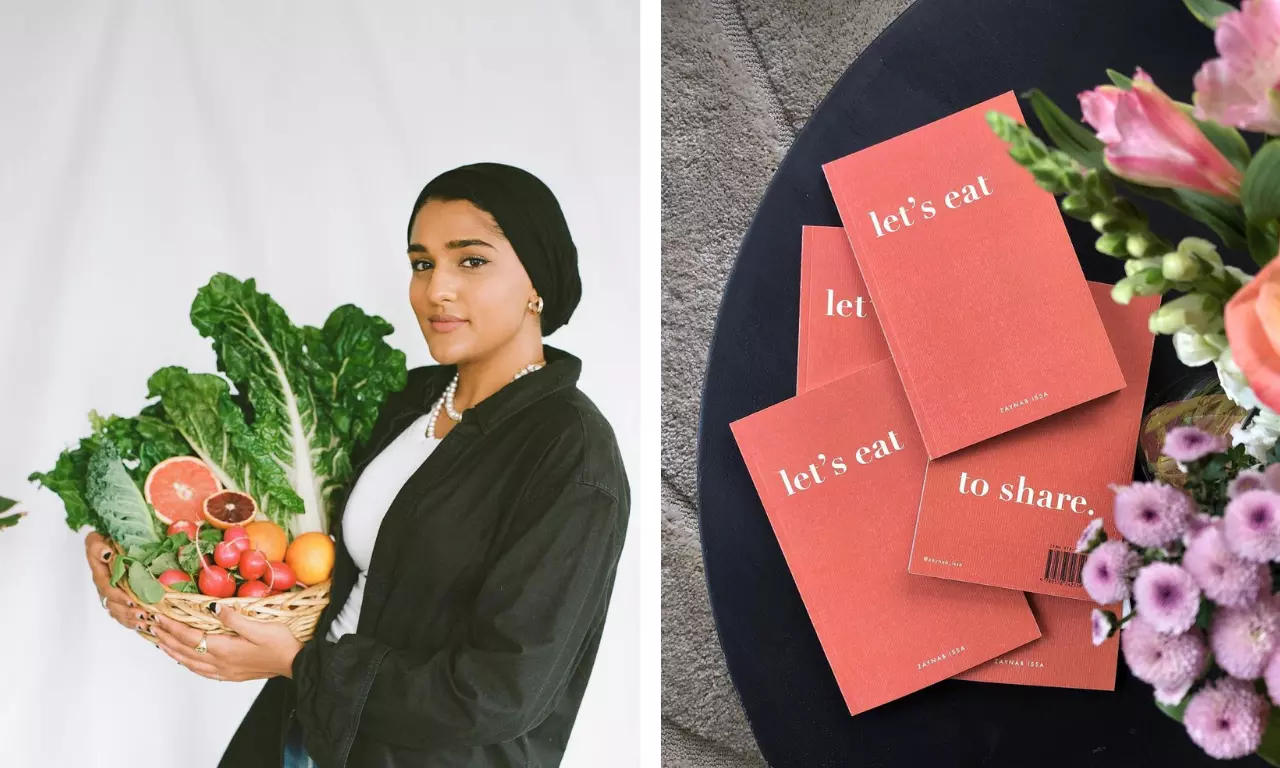Why American cookbook author Zaynab Issa, loves the East African kukupaka as much as a cup of Indian kadak chai
With roots in present-day Gujarat and East Africa, this 22-year-old writer and recipe developer’s world of food is one without borders
- By Suman Mahfuz QuaziLoading...
- | 30 May 2021 10:29 AM IST
 X
X
There's more to recipe developer, neophyte cookbook author and food writer, Zaynab Issa's tortuous culinary heritage than meets the eye. Given that her mother migrated to England first, before relocating to Pennsylvania and marrying her father, who also happened to have spent time in India, studying medicine. As such, kuku paka (a traditional, east African chicken dish cooked in coconut milk) has as much significance on her family dinner table as an English pot-pie or a roti and batata vada.
With a family that has tethers in Gujarat's Kutch region, but grew up in East Africa before migrating to the West, the spectrum of cuisines and cultures that precede Issa are mind-boggling and enlightening in equal measure. Shedding light on this, she reveals, "My dad was born in Zanzibar and my mom belonged to a family of farmers from Lindi. So, my mother, for example, can speak Gujarati, Kutchi, Swahili and Urdu too, over time because we're Muslims." This makes sense, given that East Africa has a large Indian diaspora, which amounts to approximately three million people today. Many of whom migrated as indentured labourers during the British rule, which was present in both India and Africa. Interestingly, Issa observes that the Swahili language is a mixture of Arabic, Hindi and Bantu. "Possibly because there were trade routes that connected India, Africa and the Middle East," she conjectures.
The complex and wonderful intersection of cultures that is intrinsic to her food philosophy, finds reflection in the 22-year-old's zine-style cookbook, Let's Eat, which offers a unique peek into East African and Indian recipes and has been written, designed and published by Issa herself. "It all really took off after COVID-19. I live 45 mins away from New York City, so I would spend a lot of time commuting back and forth, which meant not getting enough time at home. Also, I am a little bit more introverted, so I thrive at home; I get a lot done. That kind of jump-started the whole thing," she recalls.
So, in the same way that your grandmother finally learnt to use Whatsapp, and you mastered the art of birthdays on Zoom, Issa too began to focus on her passion for food in a way that she had never before. The idea for the book, however, came from Issa's thesis project, which was assigned to her in January, 2020. What started as a pedantic undertaking on "creating a commentary on the political climate in the US and the word, 'polarising,'" resulted in an immersive self-journey into her own culinary roots. "This was when [Donald] Trump was in office and there was a lot of extremism; everybody had different opinions and it felt like no one was getting along. So, for me, there's only one solution. Even when I think about the way I handle problems in my own life. It's like, 'Okay, let's get a cup of coffee,' or 'Let's sit down and have tea and we'll talk it through.' Food is always the perfect vehicle for conversation and a common ground," she shares, explaining why she chose a cookbook to tackle the subject at hand. And it felt natural to do this through a collection of recipes that represented Issa's culinary heritage, which is diverse, wondrous and exemplary of the evasively borderless nature of food.
Democratising food through social media
And yet, when it came down to writing the book, she decided to simplify things by opting to turn it into a zine. "This helped me stick to an easy-to-digest format and keep the costs low. I also wanted to make it accessible, because it's hard to get people to try new things, especially with cooking unfamiliar food. When you blog something, or you write on the internet or make a YouTube video, there's more of a stream of conversation, so people feel more comfortable," she argues, adding that she hopes for her book to introduce readers to East African and Indian food in an inviting manner by making it less intimidating. Which makes sense for a 20-something, whose primary foray into food media was spurred by TikTok in a pandemic-stricken world. It's important to mention here that Issa is a Muslim chef of colour and comes from a lineage that has seen a lot of race-based oppression. And has managed to carve a space for herself in spite of it. To that end, could social media have played a role in her favour? "It has diversified and democratised media. So, even with TikTok, the fact that there is no centralisation and that I can make a video about East African food in a matter of minutes is incredible. With traditional media, the stream of dispelling information is much slower. And while that makes it more powerful because there are a lot of checks, there's also value in saying that, 'Hey, this is my opinion and I am going to share it exactly how I have it,'" she points out.
Be that as it may, in so far as food is concerned—and as Issa rightly points out—diversification and democratisation are the need of the hour. It allows multiple culinary cultures and subcultures to co-exist and interact with each other. And if social media can enable that, then why not?

Suman Mahfuz Quazi
Suman Quazi believes that while food is cultural, societal and intellectual, it is also deeply personal and is keen in contributing towards a dialogue around food in India that's meaningful. Her work has appeared in leading Indian publications like Midday, Living Foodz, Zee Zest, Deccan Chronicle, 101India and DailyO.


